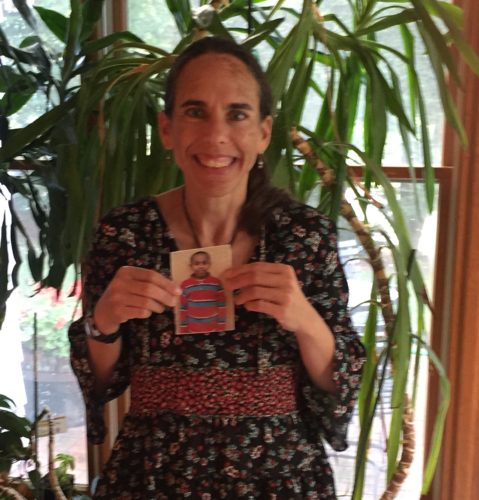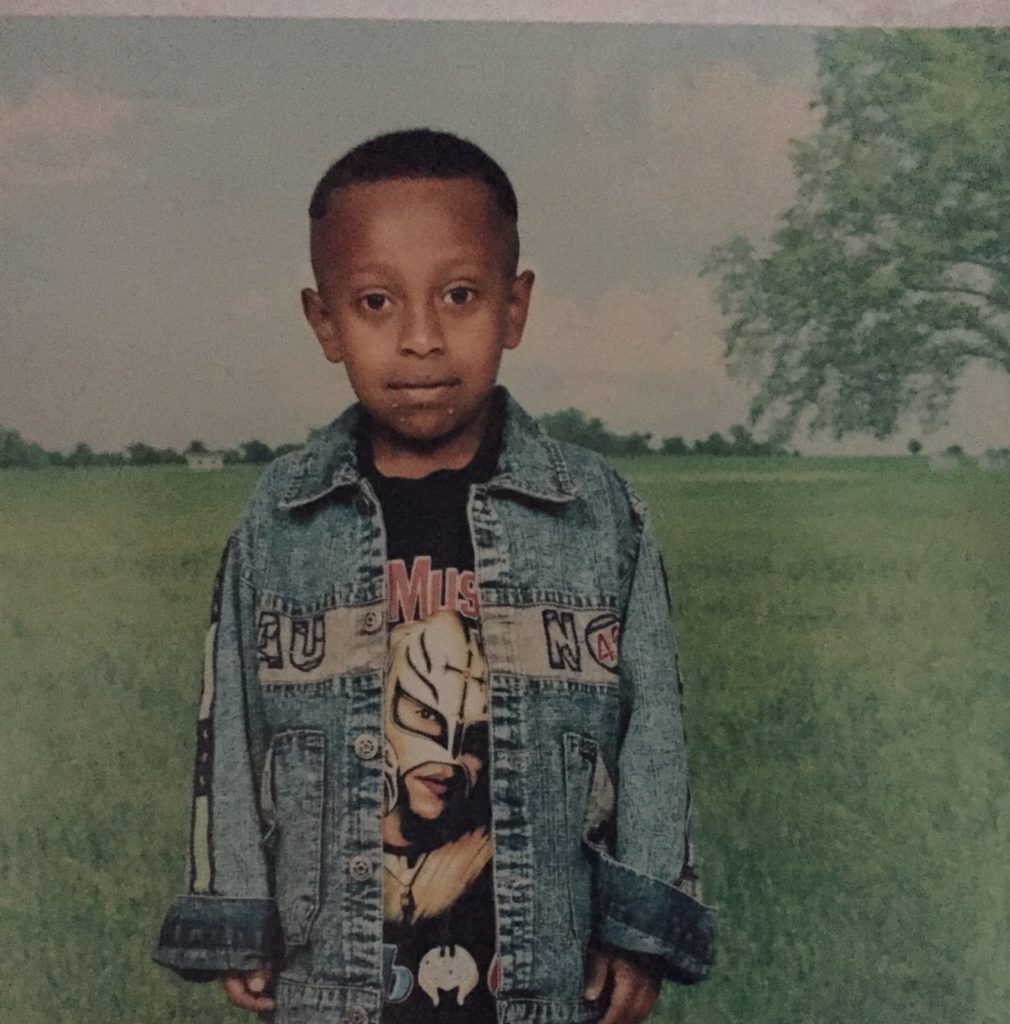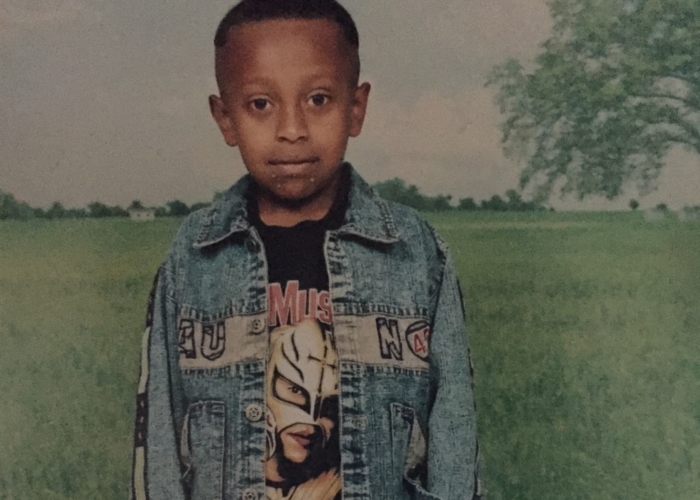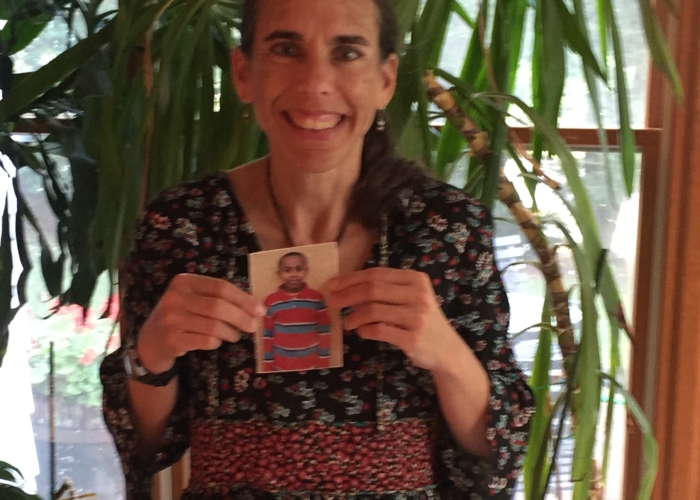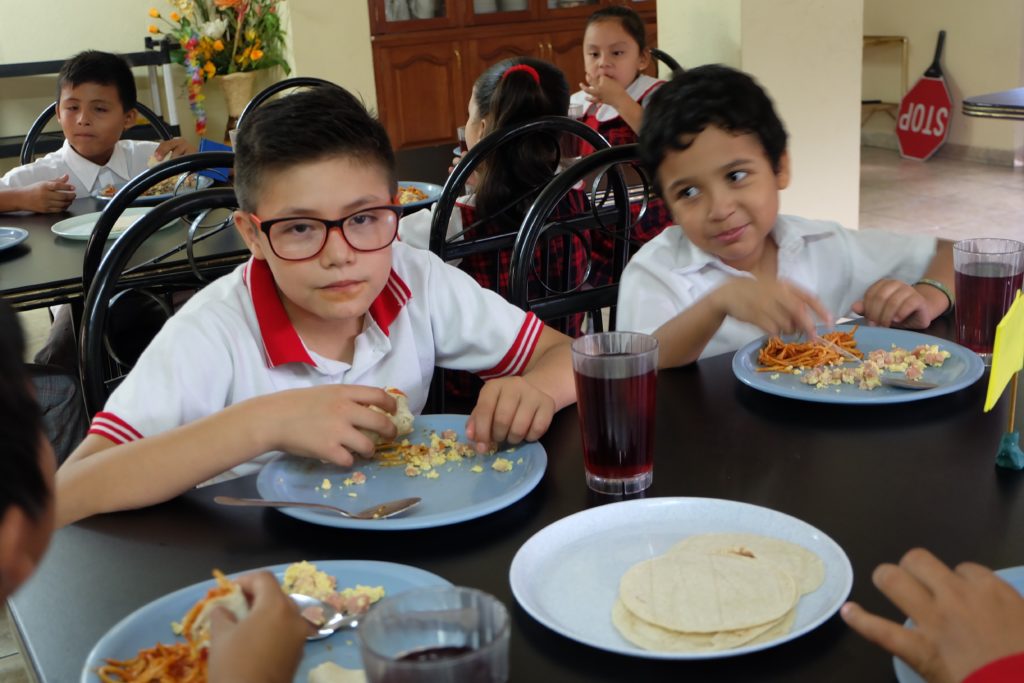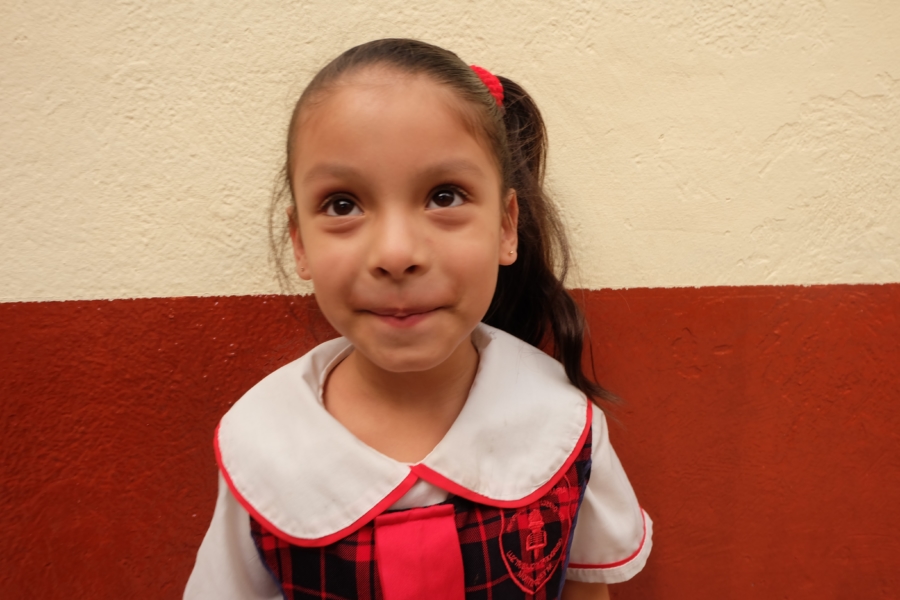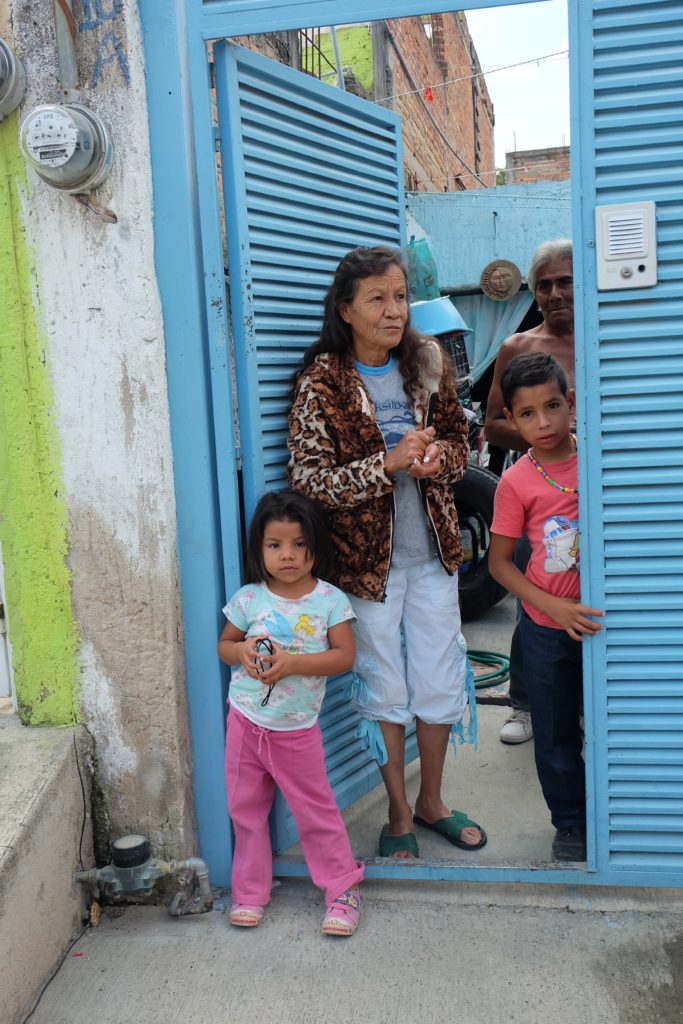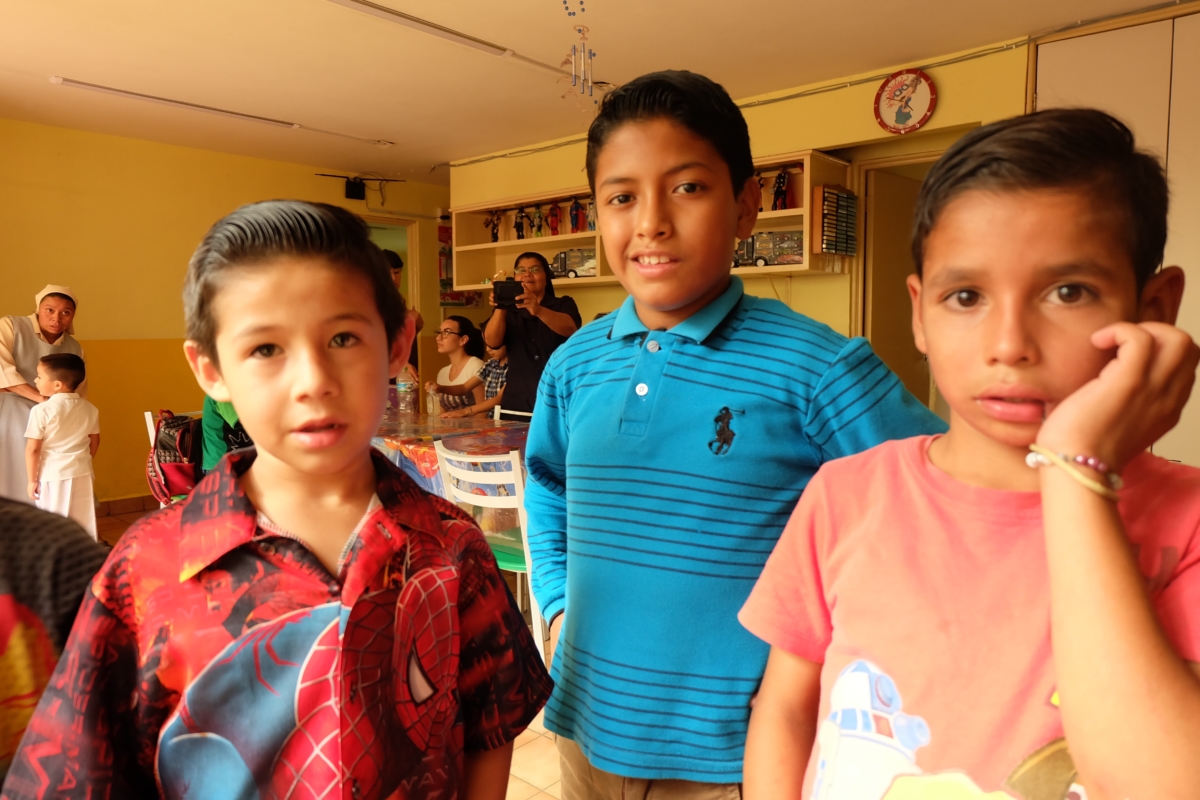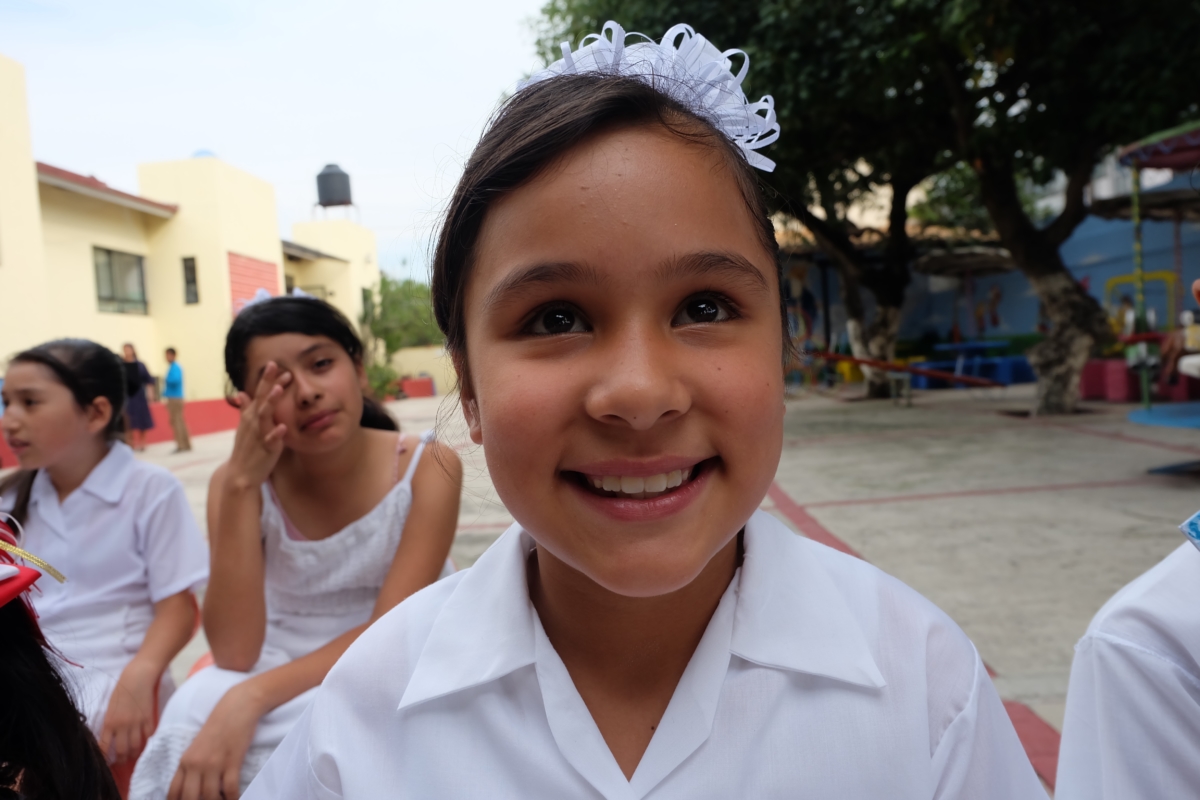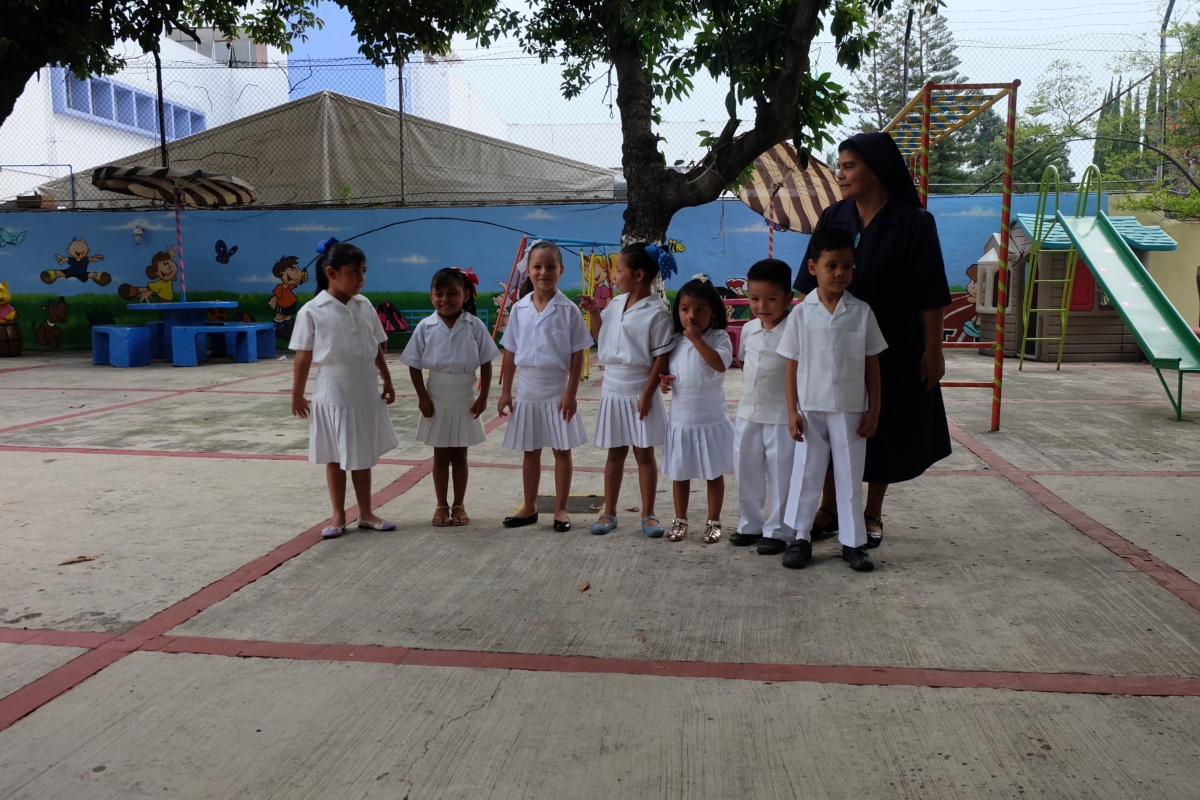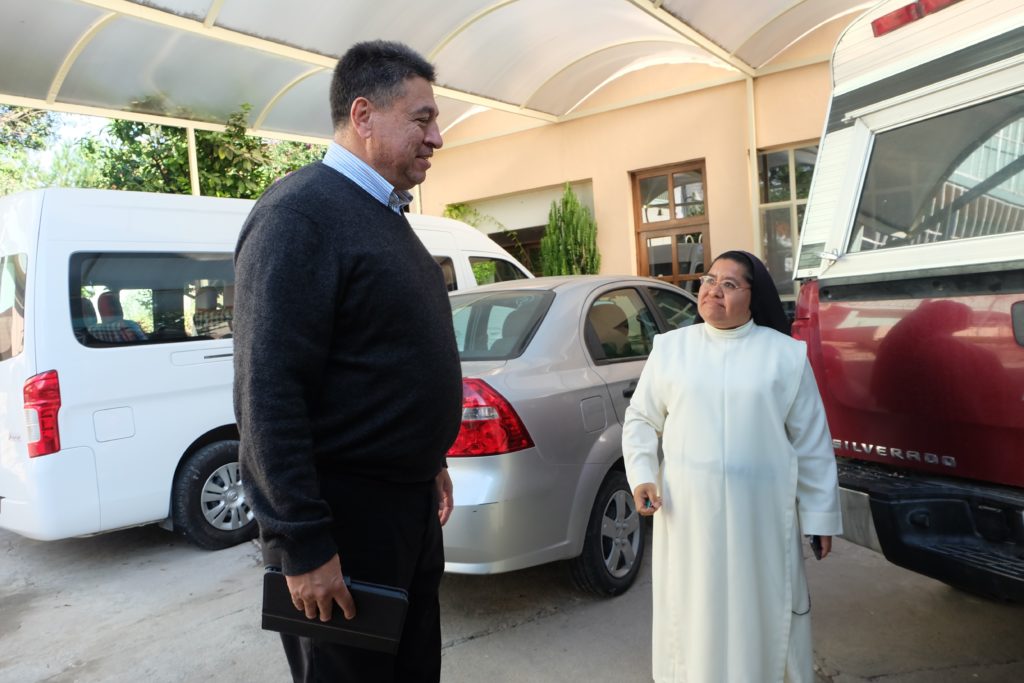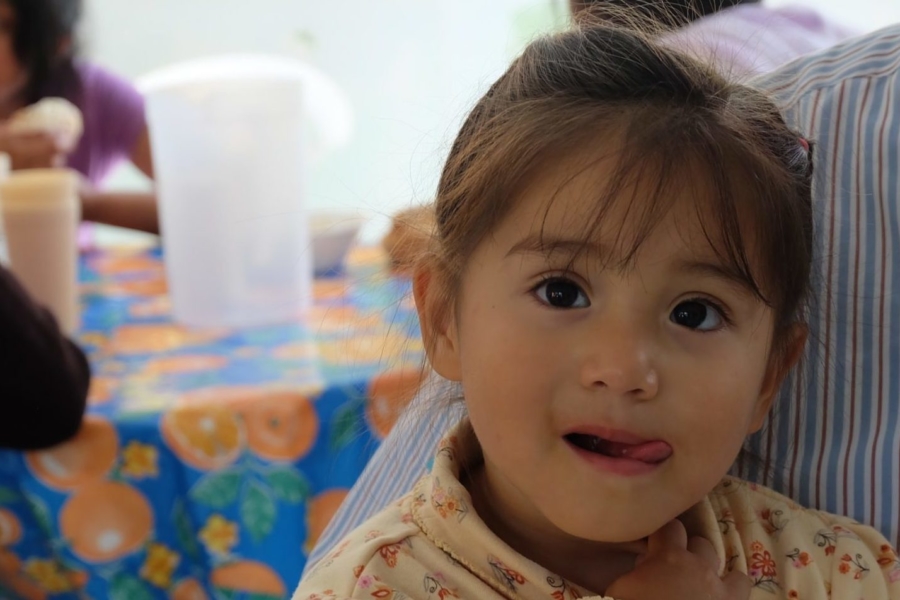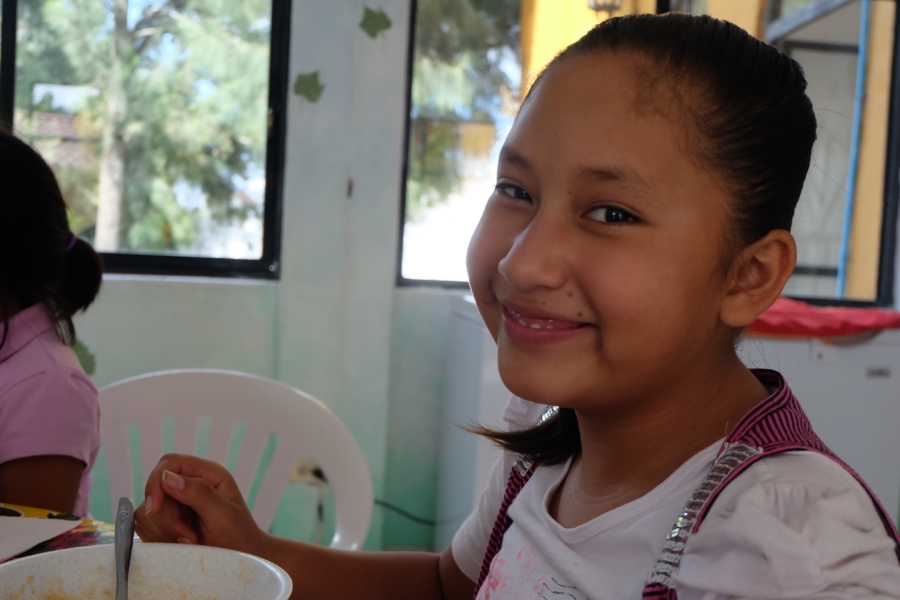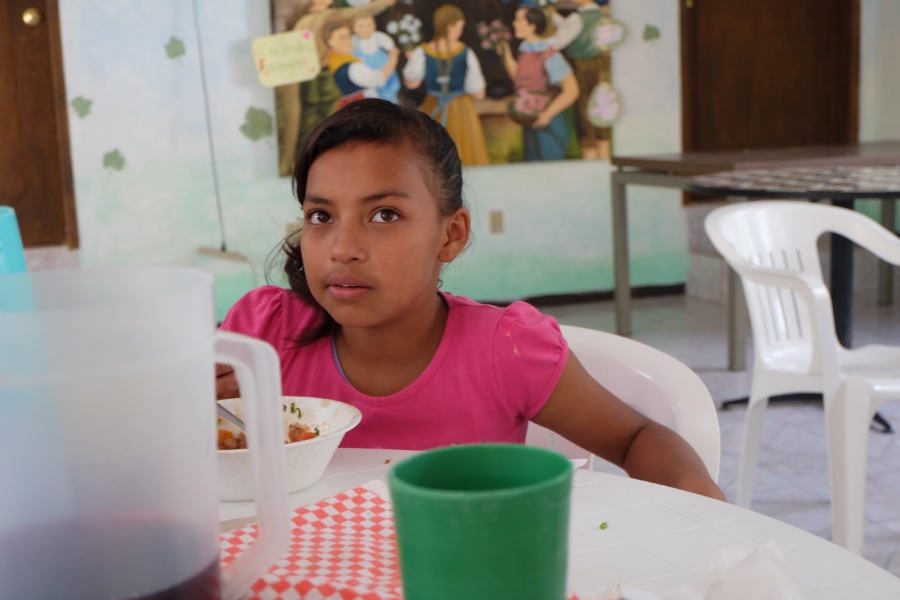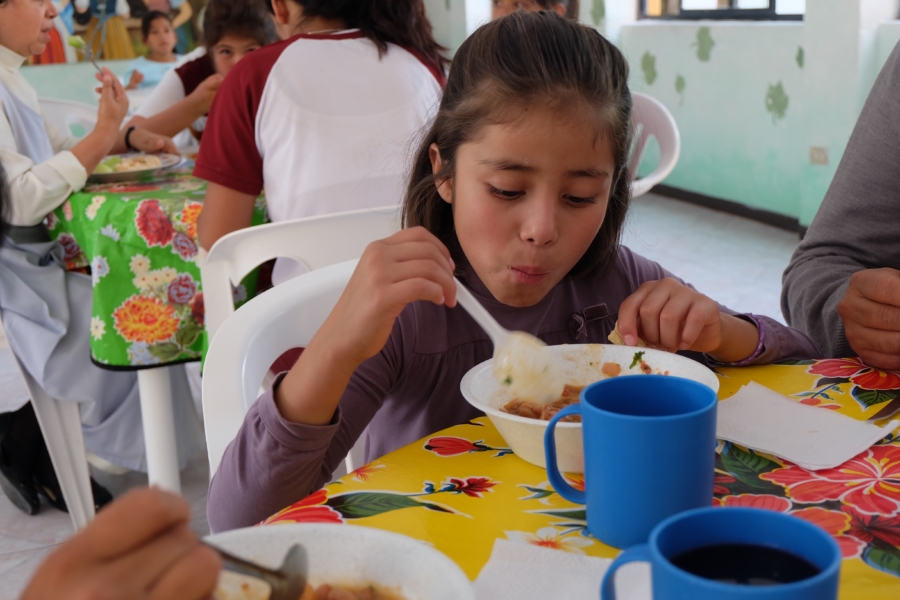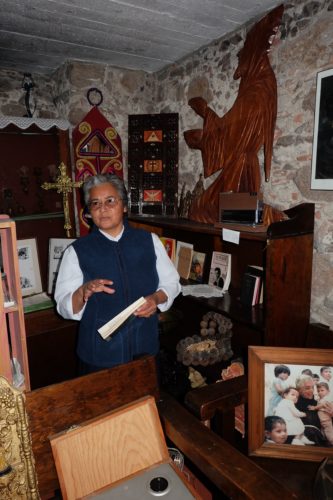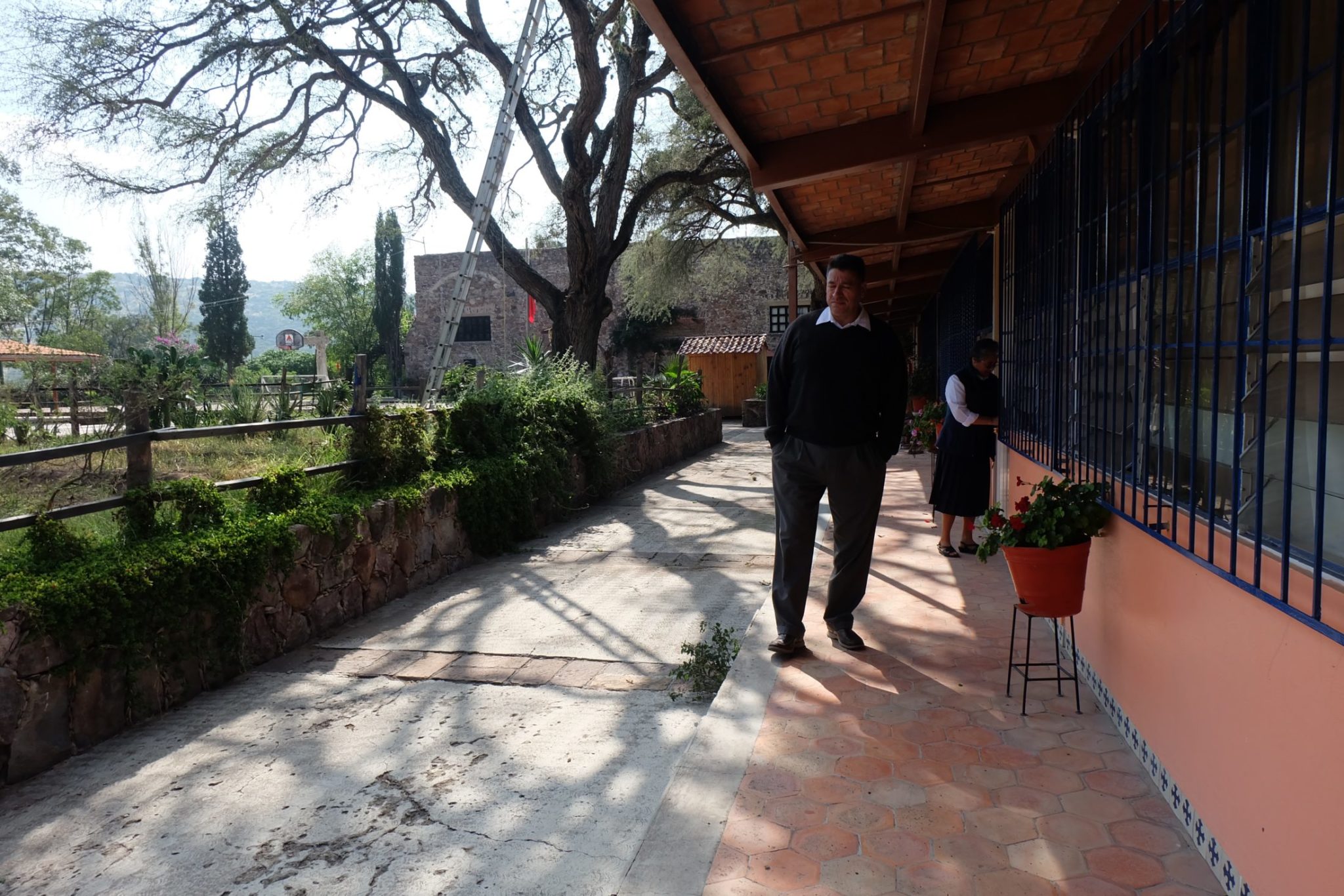It’s hard to imagine a lack of food in the nation’s capital — but there is one.
A “food desert” is a place where fresh fruit and vegetables can’t be purchased, and Washington, D.C. is just such a place. Large parts of the city — specifically the poorer — don’t have grocery stores. Instead, they have corner markets where one can purchase snacks and some canned goods, but not nutritious whole foods.
“On average, we have between sixty and 100 families that attend our monthly market,” she said. “Many of our families have a lot of people living in the household, so one limitation of our particular market is that we cannot give out food in accordance to the number of people living in the home.”
“If families have transportation barriers or illnesses, or mobility problems or other barriers to getting out of their neighborhoods, what they’re limited to is these little corner stores,” said Renée Kube, Director of U.S. Programs for Children Incorporated. “For thousands of families in the city, fresh fruits and vegetables just can’t be found.”
Except at school.
Lucy Ellen Moten Elementary School is located in Ward 8 – one of D.C.’s poorest areas. But families there are getting fresh produce each month through the Joyful Market, a partnership program between Children Incorporated and local nonprofit, Martha’s Table.
Free Shopping
Florangel Cuesta-Smith, our volunteer coordinator at Lucy Ellen Moten, said the program serves about 150 families a month in a school of about 430 students.
Once a month, volunteers set up a market of fresh fruit and vegetables inside the school. Families — or the children — can come shop for their own produce, picking out the items they want.
Everything is free, and each family is allotted a certain portion based on the number of people in them. In many cases, parents or caregivers can’t attend, so the children can do the shopping for themselves with help from volunteers.
“Because the school offers a pre-K program, children as young as three often participate on their own,” said Cuesta-Smith.
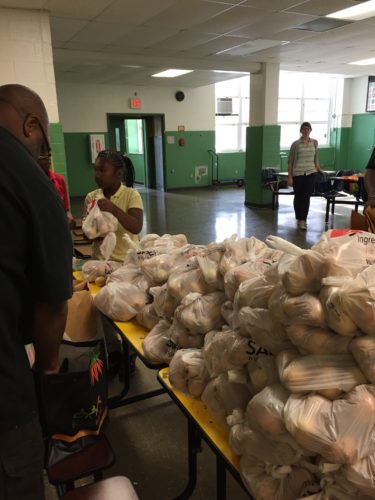
Students “shop” for fresh produce to take home
“I pre-package the produce for the littlest ones so it’s not too much for them to carry,” she said. “They take it out with them to parent-pickup at the end of the day.”
“While some children do the shopping alone, in other cases, parents or guardians help with the operation,” Kubée said.
“It’s been very appreciated, and it’s also increased parent engagement, because parents are volunteering to come in and do set-up or clean-up,” she said. “That’s a big deal for a school that’s struggling to have a viable PTA.”
“That involvement has had positive repercussions for the school as a whole as well,” Kubée said. Parents have been telling school officials that before, the only interaction they ever had with the school was when their children were in trouble. Now, they’re working with teachers and officials in happier situations, forming bonds between the school and the families it serves.
Learning to Cook
Another reason for parent involvement at the Joyful Market is the guest chef.
Each month, Martha’s Table brings in a guest chef who prepares a healthy snack or meal using the items featured in the market.
Shoppers can try out banana apple smoothies or bean soup, or they can learn how to prepare and cook a butternut squash.
“The kids love that,” said Cuesta-Smith. “And the chef hands out recipes they can take home with them.”
“Allowing kids to try the food first, and letting adults see how easy it is to prepare has been a good way to encourage healthy eating,” Kubée added.
“‘You, too can try eggplant and love it!’ is an idea that resonates if the kids actually get a chance to try it first,” she said.
Portion Control
Nearby Hart Middle School also has a successful Joyful Market program, and coordinator Ashely Lyles, said they’re hoping for more funding to expand its portions.
“On average, we have between sixty and 100 families that attend our monthly market,” she said. “Many of our families have a lot of people living in the household, so one limitation of our particular market is that we cannot give out food in accordance to the number of people living in the home.”
“Currently,” she added, “a family of ten gets the same portions as a family of five, and that’s an issue they could fix with more money as the market grows in popularity. It would be great to be able to provide extra food for the families with lots of folks living in the home,” she said.
But the Joyful Market hasn’t worked everywhere, so Children Incorporated and local volunteer coordinators have branched out with alternative ideas.
“We all know intuitively that children who are hungry when they go to school cannot do their best work while in class,” Kubée said. “Relieving hunger is a vital part of our kids’ ability to develop, grow, learn, and thrive.”
Digging in the Dirt
On the other side of D.C., in Ward 1, the Cardozo Education Campus is a combined middle and high school where Children Incorporated helped create a school garden after the market didn’t work.
One of the problems was that many of the students there are homeless or live in shelters. “Because they can’t cook or prepare food in the shelters, take-home shopping bags full of squash or zucchini didn’t work well for them,” Kubée said.
So volunteers nixed the market, and instead built a school garden.
“When the kids grew their own fresh Roma tomatoes, they were more likely to eat them — especially when they could add basil and oregano that they’ve grown, and put the tomatoes and herbs on a pizza,” she said.
The garden is also being used by the science teachers, so kids get biology lessons from it as well.
“After you try new foods, you and your science teacher can take them apart and dissect them,” she said, noting that they use vegetables to learn about cell structure and functions. “It’s great hands-on learning.”
Across the Country
The school garden is an alternative that Children Incorporated has been using in rural food deserts as well. At the Saint Michaels Association for Special Education in Arizona, the school has built a handicap-accessible garden with paths and plant beds built for easy access by students in wheelchairs.
It’s all part of an overall plan to reduce food deserts and food insecurity nationwide.
“We all know intuitively that children who are hungry when they go to school cannot do their best work while in class,” Kubée said. “Relieving hunger is a vital part of our kids’ ability to develop, grow, learn, and thrive.”
***
HOW DO I SPONSOR A CHILD IN Washington, D.C.?
You can sponsor a child in D.C. in one of two ways – call our office and speak with one of our sponsorship specialists at 1-800-538-5381, or email us at sponsorship@children-inc.org.

